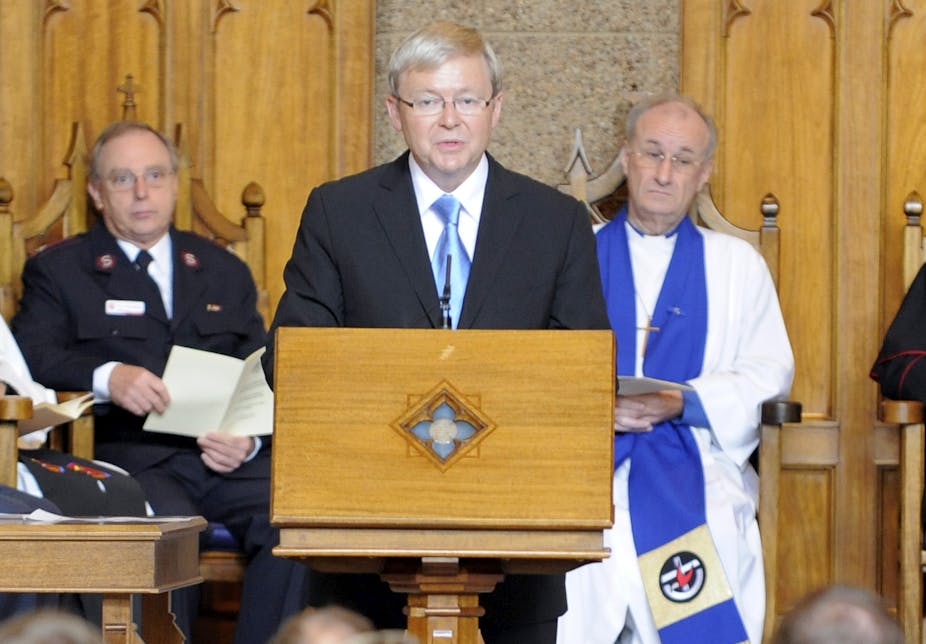He’s not the messiah … or is he?
This morning Nicola Roxon went to the heart of the matter when she said of Kevin Rudd, “he’s not the messiah”. Most of us were hoping that she’d complete the statement with a tip of the hat to Monty Python by saying he was “a very naughty boy”. Nonetheless, her other comments made clear that he was very much this and more.
But at a rhetorical level, the messiah question is very much in the air. In this morning’s exchanges, Rudd declared himself “the one” to defeat Tony Abbott. He was the one with credentials and experience to steer us through the dark valley of a world financial crisis that was far from over, and the one to heal wounds between business and workers. (Was there even a hint of carpentry in his reminder that he insists on an Australia of manufacturing, where we “make things”?)
And his tale of what had happened since he stepped down as prime minister was a tale of what happens when you stray from the straight and narrow path that leadeth unto political success. Education reforms had been unravelled, Asian engagement neglected, health reforms had come unstuck, and the soul-searching that needed to continue for the spiritual health of the Labor party had been neglected.
By contrast, the key tones of Gillard’s press conference suggested less a messiah than an effective manager at the helm, with more worthy (but perhaps also dull?) aims of building a stronger, fairer Australia.

There was plenty to strike chords with a Labor heartland, but the other qualities on display went to strong management. Key words were “fortitude”, “courage”, “method”, and “stoicism”, as well as a sense of calm under pressure.
And, in answering questions, these qualities increasingly became the means by which she distinguished herself from Rudd, the former lord of “chaos”, “paralysis” and “mess”. Throughout the dysfunctional times of Rudd as prime minister, Gillard portrayed herself as a deputy who was the rock of stability, the “go to” person who steered the ship through stormy seas.
Senior politicians need to wield words effectively. Leaders, in particular, spend much of their time persuading different groups – key electorates, the party faithful, nervous members in marginal seats, and party colleagues – that their way is the right way.
We have two very different styles at work at the moment. Rudd is appealing over the head of the caucus, in a populist manner, with the promise of messianic deliverance.
Gillard, on the other hand, is speaking a language attuned to Labor roots, full of fairness, inclusion, families and lashings of reform. Good management is uppermost in order to realise these things and keep Abbott out.
She wants to avoid the clunkiness that can come from staying doggedly at this level (remember, in the Life of Brian, the troubles besetting the Judean Peoples’ Front, or was it the Peoples’ Front of Judea?).
Broad-based electoral appeal will remain one Rudd’s key considerations over the next few days, but Gillard’s rhetoric of effective management can also work effectively at this party level.
In effect, Gillard is happy to declare that she’s not the messiah, but nor is Rudd, and we are invited to complete that Pythonesque sentence on what, in fact, he really is.

